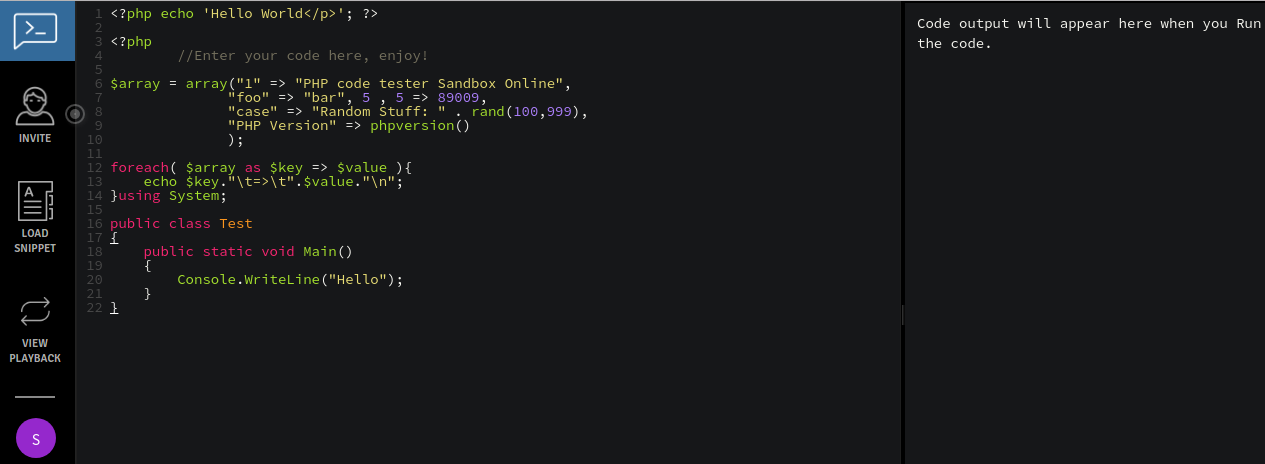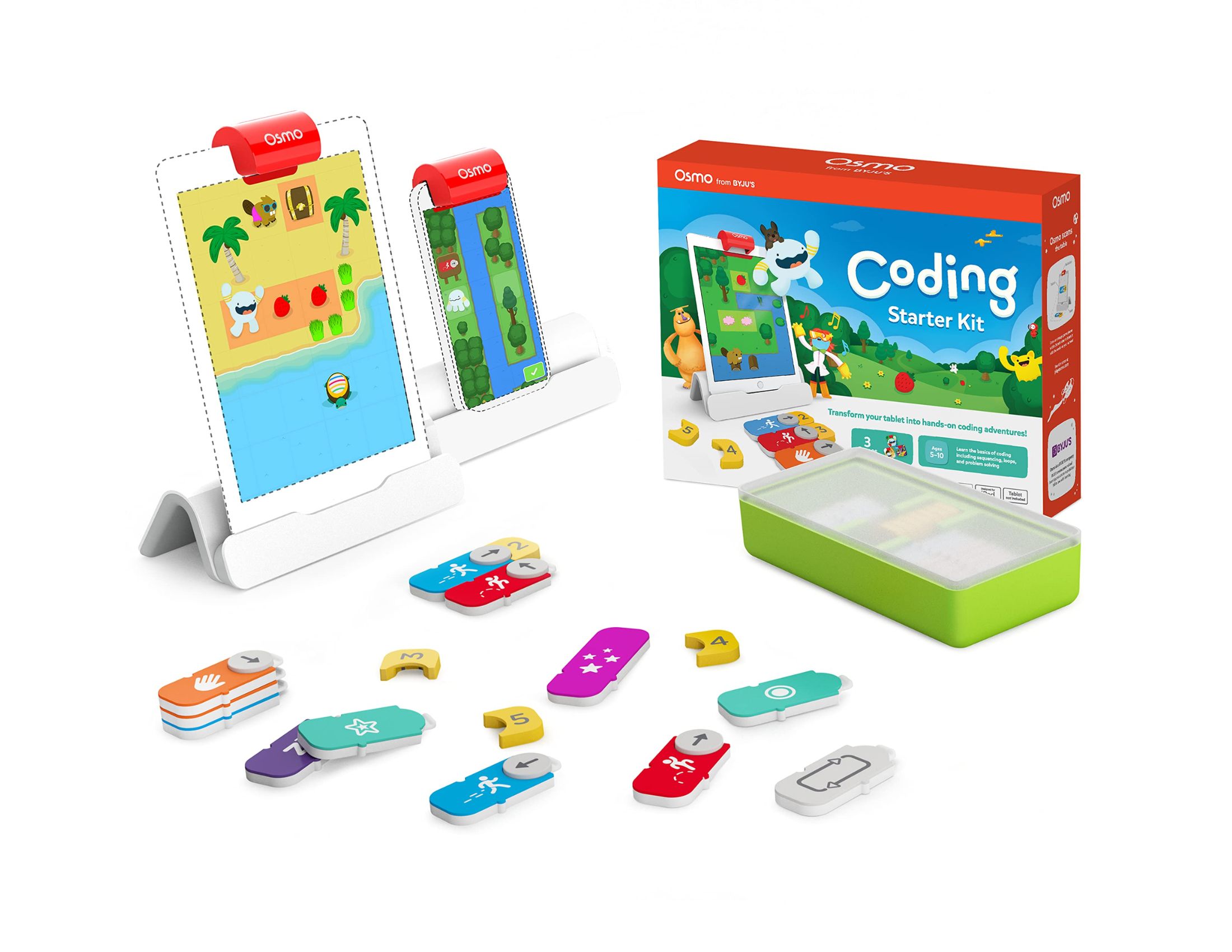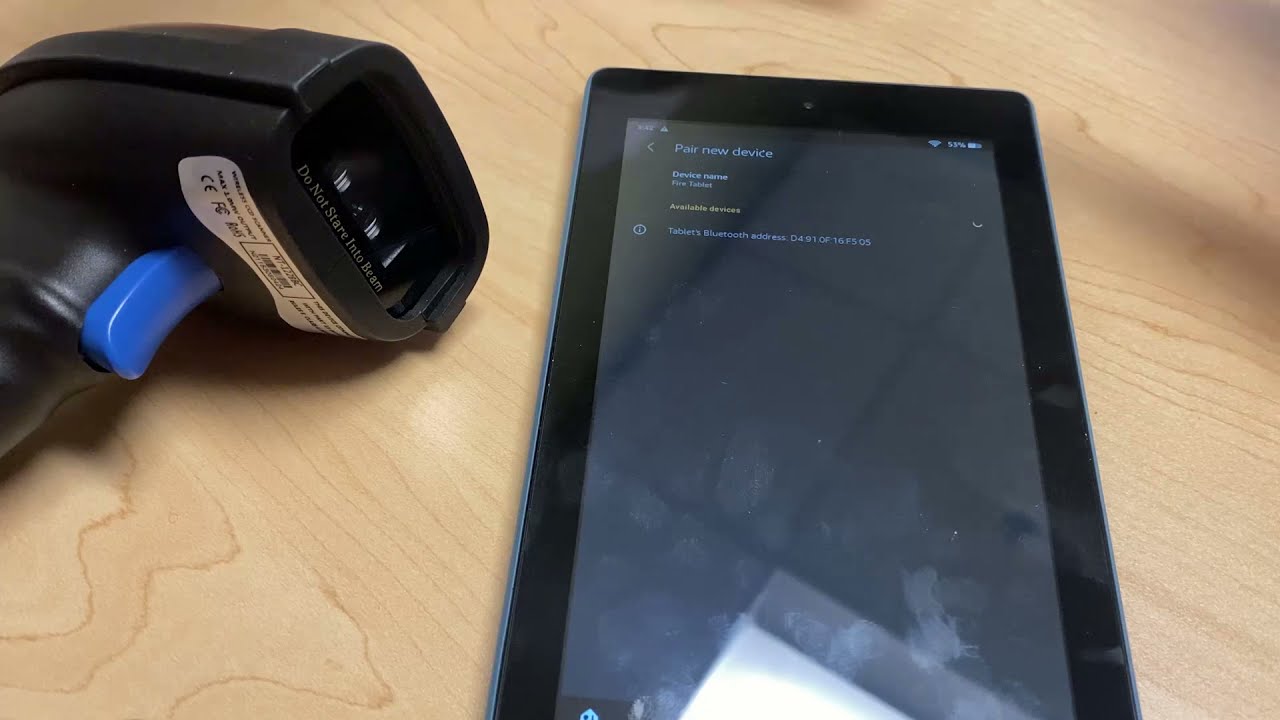Introduction
Coding is the process of using a specific set of instructions or commands to create, modify, or maintain computer programs. It is the backbone of modern technology, enabling the development of websites, mobile applications, software, and much more. In today’s digital age, coding has become an essential skill in various industries, from technology and engineering to finance and healthcare.
Coding is a language that computers understand. Just like humans communicate using spoken and written languages, computers communicate using programming languages. These languages allow programmers to write code that tells the computer what actions to perform, how to process data, and how to respond to various inputs. By understanding coding, individuals gain the power to build innovative solutions, automate tasks, and bring ideas to life.
The History of Coding: Coding has been around for decades, evolving alongside technology. The origins of coding can be traced back to the development of the first computers in the mid-20th century. Early programmers used machine language, a low-level form of coding that involved writing instructions directly in binary code. As technology advanced, higher-level programming languages like FORTRAN and COBOL were introduced, enabling programmers to write code using more human-readable syntax.
Why Coding is Important: The importance of coding cannot be overstated in today’s technologically-driven world. Here are a few reasons why coding is crucial:
- Automation and Efficiency: Coding allows tasks to be automated, saving time and increasing efficiency. With the ability to write code, repetitive tasks can be completed in seconds rather than hours, freeing up valuable resources to focus on more important matters.
- Problem Solving: Coding helps develop logical thinking and problem-solving skills. Programmers need to analyze complex issues, break them down into smaller parts, and find the most efficient solutions. Learning to code encourages critical thinking and improves problem-solving abilities that are transferable to various areas of life.
- Creativity and Innovation: Coding is an outlet for creativity, enabling individuals to express their ideas and bring them to life through technology. By combining different programming concepts and tools, coders can create innovative applications, websites, and interactive experiences.
- Job Opportunities: In today’s digital economy, coding skills are in high demand. From software development and web design to data analysis and cybersecurity, there are numerous career paths where coding expertise is highly valued. Learning to code opens up a world of job opportunities and the potential for a rewarding and well-compensated career.
Understanding Coding
Coding involves writing instructions in a specific programming language to tell a computer what to do. To understand coding, it is important to familiarize oneself with the key concepts and components involved.
Programming Languages: A programming language is the foundation of coding. It is a set of rules and syntax that defines how code should be written. There are various programming languages, each with its own unique syntax and use cases. Some popular programming languages include Java, Python, C++, and JavaScript.
Variables and Data Types: In coding, variables are used to store and manipulate data. Variables can hold different types of data, such as numbers, strings of text, or Boolean values (true or false). Understanding different data types and how to use variables effectively is essential for coding applications.
Control Structures: Control structures determine the flow of a program. They allow programmers to control the execution of code based on specific conditions or loops. Common control structures include if/else statements, loops (such as for and while loops), and switch statements.
Functions and Methods: Functions and methods are reusable blocks of code that perform specific tasks. They help organize code and make it more efficient and modular. Functions can take input (arguments) and return output (return values), allowing code to be easily reused or called multiple times.
Object-Oriented Programming (OOP): Object-oriented programming is a coding paradigm that organizes code into objects. Objects are instances of classes, which contain attributes (data) and methods (functions that operate on the data). OOP allows for code reusability, encapsulation, and easier collaboration in larger projects.
Debugging and Problem Solving: Debugging is an essential skill for coders. It involves identifying and fixing errors, also known as bugs, in the code. Problem-solving is a crucial aspect of coding, as programmers often encounter challenges that require logical thinking and creativity to overcome.
Version Control: Version control systems, such as Git, are used to track changes in code and collaborate with other programmers. It allows for easier collaboration, bug tracking, and the ability to revert back to previous versions of the code if needed.
By understanding these core concepts and components of coding, individuals can start writing code and creating their own programs. It is an iterative learning process, with opportunities for continuous improvement and growth as one delves deeper into the world of coding.
The History of Coding
Coding has a rich and fascinating history that spans several decades. It has evolved alongside the development of computers and technology, transforming the way we live, work, and communicate.
The earliest forms of coding can be traced back to the mid-20th century. In the early days of computing, programmers used a form of coding known as machine language. Machine language involved manually writing instructions in binary code, which consisted of sequences of 0s and 1s that the computer could understand. This low-level form of coding was tedious and error-prone, requiring programmers to have in-depth knowledge of computer architecture.
As computers became more advanced, higher-level programming languages were developed. These languages allowed programmers to write code using more human-readable syntax, making coding more accessible to a wider range of people. One of the first high-level programming languages was FORTRAN (Formula Translation), created in the 1950s for scientific and engineering calculations. FORTRAN made it easier for scientists and engineers to write code and perform complex calculations.
In the 1960s, another significant programming language called COBOL (Common Business-Oriented Language) was created. COBOL revolutionized business data processing, providing a language specifically designed for handling large-scale data and business applications. It played a crucial role in the development of early commercial computer systems.
Throughout the 1970s and 1980s, programming languages continued to evolve and gain popularity. Languages like Pascal, BASIC, and C were developed, offering more flexibility and advanced features. C, in particular, had a significant impact on the development of modern programming languages and operating systems. It laid the foundation for languages like C++, Java, and C#, which are still widely used today.
In the 1990s, the emergence of the internet and the World Wide Web drove the need for new programming languages and technologies. JavaScript was introduced, enabling interactivity and dynamic content on websites. HTML and CSS became essential for building and styling web pages. As web development grew, so did the demand for web-centric programming languages like PHP, Ruby, and Python.
In recent years, advancements in technology have led to the rise of new programming paradigms and languages. The increasing popularity of mobile devices has paved the way for languages like Swift and Kotlin, specifically designed for mobile app development. Data analysis and machine learning have also gained traction, with Python and R being used extensively in these fields.
The history of coding has been a progressive journey of innovation and adaptation. From the early days of machine language to the development of high-level programming languages and specialized frameworks, coding has evolved to meet the demands of an ever-changing technological landscape. Today, coding continues to shape our world, empowering individuals and driving innovation in various industries.
Why Coding is Important
Coding has become increasingly important in today’s digital era. It is a skill that goes beyond creating software and websites – it has a profound impact on various aspects of our lives. Here are several reasons why coding is crucial:
- Automation and Efficiency: Coding allows us to automate tasks and improve efficiency. By writing code, we can create programs and algorithms that can perform repetitive tasks quickly and accurately. This not only saves time but also reduces the chances of human error.
- Problem Solving: Coding requires logical thinking and problem-solving skills. Programmers need to break down complex problems into smaller, more manageable components, and develop algorithms to solve them. Learning to code nurtures these critical thinking abilities, which are valuable in many areas of life.
- Creativity and Innovation: Coding is a form of creative expression. It allows individuals to bring ideas to life by writing code that materializes their vision. Whether it’s designing a website, creating a mobile app, or developing an innovative software solution, coding enables creativity and innovation.
- Job Opportunities: In today’s job market, coding skills are in high demand. From software development and web design to data analysis and cybersecurity, there is a wide range of career opportunities available for individuals who can code. Learning to code opens up new possibilities for employment and can lead to well-paid and fulfilling careers.
- Technology Empowerment: Coding empowers individuals to interact and shape the digital world around them. It allows us to understand, customize, and improve the technologies we use every day. By understanding coding, we can have a deeper appreciation and control over the technology that impacts our lives.
- Digital Literacy: In a digitally connected world, coding literacy is becoming as essential as reading and writing. It equips individuals with the ability to understand and navigate the technologies they encounter in their personal and professional lives. Coding literacy ensures that we are active participants rather than passive consumers of technology.
- Collaboration and Communication: Coding fosters collaboration and communication skills. Many coding projects are collaborative efforts, requiring team members to work together and share code. Learning to code improves the ability to express ideas clearly, understand others’ code, and work collectively on complex projects.
Whether for personal or professional reasons, learning to code offers a wealth of benefits. It enhances problem-solving skills, promotes creativity, and opens up new opportunities. As technology continues to evolve, coding will undoubtedly play an even more significant role in shaping the future. Embracing coding is not just about learning a new skill; it is about embracing the limitless possibilities enabled by the digital world.
Common Coding Languages
Coding languages are the building blocks of software development, web design, and many other digital applications. There are numerous coding languages available, each with its own unique features, syntax, and purpose. Here are some of the most common coding languages used today:
- JavaScript: JavaScript is a versatile programming language that is primarily used for web development. It enables interactive and dynamic features on websites, such as form validation, animations, and responsive design. In recent years, JavaScript has also gained popularity for server-side development through frameworks like Node.js.
- Python: Python is a high-level programming language known for its simplicity and readability. It is widely used in areas such as data analysis, scientific computing, artificial intelligence, and web development. Python’s extensive library ecosystem makes it a powerful language for various applications.
- Java: Java is a widely adopted programming language known for its platform independence. It is used for building mobile apps, enterprise-level systems, and web applications. Java is also the language of choice for Android app development.
- C++: C++ is a powerful, general-purpose programming language often used for system-level software, game development, and high-performance applications. It offers a balance between low-level and high-level programming, making it suitable for projects that require both efficiency and abstraction.
- C#: C# (pronounced as C-sharp) is a versatile programming language developed by Microsoft. It is used to build a wide range of applications, including Windows desktop applications, web applications, and game development using the Unity platform.
- PHP: PHP is a server-side scripting language widely used for web development. It is particularly popular for building dynamic websites and content management systems like WordPress and Drupal. PHP can be embedded within HTML, making it easy to integrate with existing web projects.
- Ruby: Ruby is a dynamic, object-oriented programming language known for its simplicity and ease of use. It has a strong focus on developer productivity and is often associated with web development using the Ruby on Rails framework.
- Swift: Swift is a programming language developed by Apple for iOS, macOS, watchOS, and tvOS app development. It has gained popularity for its modern syntax, safety features, and performance, making it an excellent choice for creating intuitive and efficient iOS applications.
- SQL: SQL (Structured Query Language) is specifically designed for managing and manipulating data stored in relational databases. It plays a critical role in data analysis, database management, and backend development.
- HTML/CSS: Although not traditionally considered programming languages, HTML (Hypertext Markup Language) and CSS (Cascading Style Sheets) are fundamental for web development. HTML is used for structuring web content, while CSS is responsible for styling and layout. Together, they form the backbone of every website.
These are just a few examples of coding languages, and there are many more to explore. The choice of coding language depends on the specific project requirements, industry standards, and personal preferences. By learning one or more of these common coding languages, individuals can unlock endless possibilities and embark on exciting coding adventures.
Coding Resources and Tools
Learning to code and staying up-to-date with the latest coding trends and techniques is made easier by the abundance of coding resources and tools available. Whether you’re a beginner or an experienced developer, these resources can enhance your coding skills and make your coding journey more efficient:
- Online Learning Platforms: Websites like Codecademy, Udemy, and Coursera offer a wide range of coding courses and tutorials. These platforms provide structured learning paths, interactive coding exercises, and video tutorials that cater to various programming languages and skill levels.
- Coding Bootcamps: Coding bootcamps are intensive, immersive training programs designed to quickly teach coding skills. They provide hands-on learning experiences, mentorship, and real-world projects. Bootcamps like General Assembly and Flatiron School offer coding programs for beginners and experienced developers alike.
- Documentation and Online Communities: Official documentation from programming language creators, such as MDN Web Docs for JavaScript or the Python documentation, offers comprehensive guides, language specifications, and usage examples. Online communities like Reddit, Stack Overflow, and GitHub provide forums for asking questions, sharing knowledge, and collaborating with other developers.
- Integrated Development Environments (IDEs): IDEs, such as Visual Studio Code, IntelliJ IDEA, and PyCharm, provide a comprehensive coding environment with features like code auto-completion, syntax highlighting, debugging tools, and plugins. IDEs make coding more efficient and enhance productivity.
- Code Editors: Code editors like Sublime Text, Atom, and Notepad++ offer lightweight and customizable environments for writing code. They provide features like syntax highlighting, code snippets, and easy customization, making them popular among developers.
- Version Control Systems: Version control systems like Git enable developers to track changes in their code, collaborate with others, and manage different versions of their projects. Platforms like GitLab, Bitbucket, and GitHub provide hosting for Git repositories and additional features like issue tracking and project management tools.
- Developer Communities and Events: Joining developer communities and attending coding events, like hackathons or meetups, can provide opportunities to network with other developers, share ideas, and learn from experienced professionals. Platforms like Meetup.com and Dev.to showcase local and virtual coding events and communities.
- Online Code Editors and Sandboxes: Online code editors and sandboxes, such as CodePen, JSFiddle, and Repl.it, allow developers to write and test code within a web browser. These tools are useful for quickly prototyping ideas, sharing code snippets, and collaborating on coding projects.
- Open-Source Projects: Contributing to open-source projects exposes developers to real-world codebases and collaboration within a community of developers. Platforms like GitHub have vast repositories of open-source projects covering a wide range of programming languages and domains.
These resources and tools provide a wealth of opportunities for developers to learn, collaborate, and improve their coding skills. Whether it’s online learning platforms, coding bootcamps, or developer communities, there are options to suit various learning styles and preferences. Exploring and utilizing these coding resources can accelerate your coding journey and enhance your abilities as a developer.
Getting Started with Coding
Embarking on the journey of learning coding can be exciting, but it may seem daunting at first. Fortunately, there are several steps you can take to get started and make your coding experience enjoyable and rewarding:
- Define Your Goals: Start by clarifying why you want to learn coding and what you hope to achieve. Understanding your goals will help you stay focused and motivated throughout your coding journey.
- Select a Programming Language: Choose a programming language based on your goals and interests. Popular choices for beginners include Python and JavaScript, as they have beginner-friendly syntax and extensive learning resources available.
- Explore Learning Resources: Utilize online learning platforms, coding tutorials, books, and video courses to learn the basics of your chosen programming language. Codecademy, Udemy, and freeCodeCamp are excellent resources to start with.
- Practice Coding: Hands-on practice is crucial for mastering coding concepts. Start with small projects and coding exercises to apply what you’ve learned. Code challenges on websites like Codewars or HackerRank can also help improve your problem-solving skills.
- Join Coding Communities: Engage with coding communities to connect with other learners and experienced developers. Platforms like Reddit, Stack Overflow, and GitHub provide forums to ask questions, get feedback, and share ideas.
- Participate in Coding Challenges and Hackathons: Look for coding challenges or hackathons to participate in. These events provide opportunities to test your coding skills, collaborate with others, and learn from experienced developers.
- Build Projects: As you gain confidence, start working on your coding projects. Choose projects that align with your interests, whether it’s building a personal website, creating a simple game, or automating a repetitive task.
- Learn from Open-Source Projects: Explore open-source projects on platforms like GitHub. Studying code written by experienced developers can teach you coding best practices and give you insights into real-world projects.
- Seek Feedback: Share your code with others and ask for feedback. Constructive criticism will help you improve your coding skills and gain valuable insights from experienced developers.
- Be Persistent and Keep Learning: Learning to code is an ongoing journey. Stay persistent, embrace challenges, and keep up with new technologies. Continuously learning and expanding your skills will help you stay relevant in the ever-evolving world of coding.
Remember, learning coding takes time and practice. Celebrate your progress along the way and don’t be discouraged by difficulties. With dedication, perseverance, and a growth mindset, you can become a skilled coder and open up a whole new world of possibilities.
Coding Challenges and Projects
Coding challenges and projects are excellent ways to apply and enhance your coding skills. They provide opportunities to practice problem-solving, gain hands-on experience, and showcase your abilities as a developer. Here are a few ways to engage in coding challenges and projects:
- Online Coding Platforms: Websites like LeetCode, HackerRank, and Codewars offer coding challenges of varying difficulty levels. These platforms feature a wide range of algorithmic problems and coding puzzles that can sharpen your coding skills and improve your problem-solving abilities.
- Open-Source Contributions: Contributing to open-source projects is a fantastic way to collaborate with other developers and gain real-world experience. Platforms like GitHub provide countless projects that welcome contributions, whether it’s fixing bugs, adding new features, or improving documentation.
- Building Personal Projects: Developing your own projects allows you to apply your skills and creativity. Start small with projects that are manageable and align with your interests. It could be creating a personal website, developing a simple game, or building a productivity tool that solves a specific problem.
- Participating in Hackathons: Hackathons are events where developers gather to collaborate intensively on projects within a set timeframe. It’s a fantastic opportunity to work on a team, brainstorm ideas, and build something from scratch. Hackathons often have specific themes or goals, fostering creativity and innovation.
- Tackling Real-World Problems: Look for opportunities to solve real-world problems using coding. For example, you could develop an app to manage personal finances, create a website for a local nonprofit organization, or build a tool that automates a specific task in your workplace. Solving practical problems can provide valuable experience and a sense of purpose.
- Collaborating with Peers: Engage in coding projects with fellow learners or experienced developers. Collaborative coding projects allow you to learn from others, exchange ideas, and work together on more complex endeavors. It’s an opportunity to improve your teamwork and communication skills, as well as deepen your understanding of coding concepts.
When engaging in coding challenges and projects, it’s important to approach them with a growth mindset and a willingness to learn. Embrace the challenges you face along the way, as they provide valuable learning opportunities. Don’t hesitate to research, seek guidance, and experiment with different approaches. Remember, the journey of coding challenges and projects is about continual learning, growth, and honing your coding skills.
Career Opportunities in Coding
One of the most compelling aspects of learning coding is the wide range of career opportunities it opens up. Coding skills are in high demand across various industries, and the demand is only expected to grow in the future. Here are some of the career paths that coding can lead to:
- Software Developer: Software developers design, develop, and maintain computer software. They create applications for desktop and mobile devices, as well as web-based solutions. Software developers work with programming languages and frameworks to bring ideas to life and solve complex problems.
- Web Developer: Web developers specialize in creating websites and web applications. They use HTML, CSS, and JavaScript, along with frameworks like React or Angular, to build interactive and user-friendly web experiences. Web developers can work as front-end developers, back-end developers, or full-stack developers.
- Data Analyst/Scientist: Data analysts and data scientists utilize coding to analyze and interpret complex data sets. They use programming languages like Python or R to analyze data, build predictive models, and generate insights that drive decision-making in businesses.
- Mobile App Developer: Mobile app developers specialize in building applications for mobile devices. They may develop apps for iOS using languages like Swift, or for Android using Java or Kotlin. Mobile app developers focus on creating engaging and functional user experiences for smartphones and tablets.
- Game Developer: Game developers use coding to design, develop, and maintain video games. They work with programming languages, game engines, and development frameworks to create captivating gaming experiences. Game developers can specialize in areas such as game design, graphics programming, or game physics.
- Cybersecurity Specialist: Cybersecurity specialists help protect computer systems and networks from cyber threats. They use coding and scripting languages to identify vulnerabilities, develop security measures, and ensure data protection. Cybersecurity professionals play a critical role in safeguarding sensitive information.
- UI/UX Designer: UI/UX designers utilize coding to create visually appealing and user-friendly digital interfaces. They work closely with developers to ensure seamless interactions and intuitive user experiences. UI/UX designers focus on optimizing usability, accessibility, and overall user satisfaction.
- Robotics Engineer: Robotics engineers design and develop robots that perform specific tasks autonomously. They employ coding languages to program robot behavior, integrate sensors and actuators, and solve complex problems in fields such as industrial automation, healthcare, and autonomous vehicles.
- Freelance Developer: Many coding professionals work as freelancers, offering their skills and expertise on a project basis. Freelancers have the flexibility to work on diverse projects, collaborate with different clients, and manage their own schedules.
- Entrepreneur: Coding skills provide a strong foundation for aspiring entrepreneurs. With coding knowledge, individuals can develop their own software products, build online platforms, or start tech-related businesses, leveraging their coding abilities to bring innovative ideas to fruition.
These are just a few examples of the vast career opportunities available to those with coding skills. What makes coding particularly exciting is that it is a constantly evolving field, with new technologies and roles continually emerging. By gaining coding skills and staying up-to-date with industry trends, you can embark on a dynamic and fulfilling career path.
Conclusion
Coding is a powerful skill that has become ingrained in our modern world. It empowers individuals to innovate, solve problems, and shape the digital landscape that surrounds us. From building websites and mobile apps to analyzing complex data and developing software, coding offers endless possibilities for creativity and career growth.
Learning to code may seem daunting at first, but with the abundance of resources and tools available, it has never been more accessible. Online learning platforms, coding bootcamps, and developer communities provide opportunities to acquire and improve coding skills at your own pace.
As you embark on your coding journey, remember to set clear goals, select a programming language that aligns with your interests, and practice hands-on coding regularly. Engaging in coding challenges, building projects, and participating in coding events can deepen your understanding and enhance your problem-solving abilities.
Furthermore, coding opens up a world of career opportunities. Software development, web design, data analysis, mobile app development, and cybersecurity are just a few of the many fields where coding skills are in high demand. With dedication, continuous learning, and a growth mindset, you can pursue a rewarding and fulfilling career in coding.
So, whether you are just starting your coding journey or seeking to expand your existing skills, embrace the challenges, stay curious, and never stop learning. The world of coding is constantly evolving, and by continually honing your coding skills, you can make a meaningful impact in the digital realm and shape the future through technology.

























